BadB
Professional
- Messages
- 2,469
- Reaction score
- 2,472
- Points
- 113
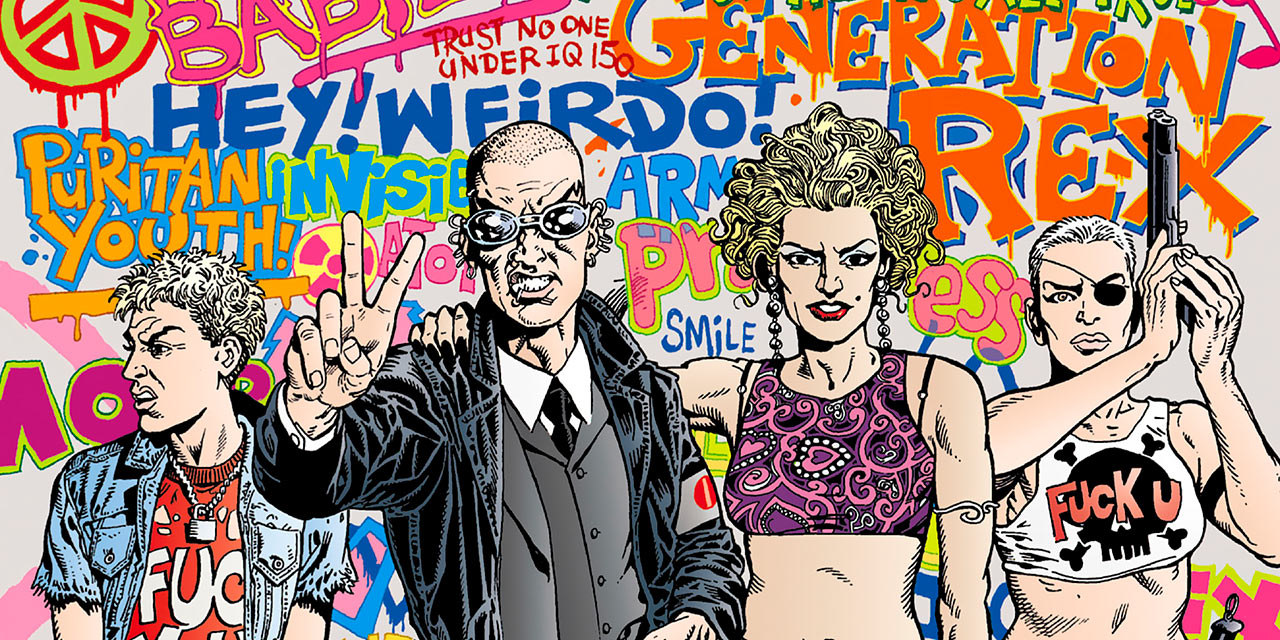
Once upon a time, the topic of cypherpunk (or cryptanarchism, more officially) was the most technological and daring protest in the era of the emerging influence of the network on the life of the average metropolitan resident. Unlike many popular views and hopes of the time, this philosophy had very practical goals that have much to do with personal and public safety.
These guys even appeared on Wikipedia:
Cypherpunk is an informal group of people interested in maintaining anonymity and interested in cryptography. Initially, the cypherpunks communicated through a network of anonymous remailers. The goal of this group was to achieve anonymity and security through the active use of cryptography.
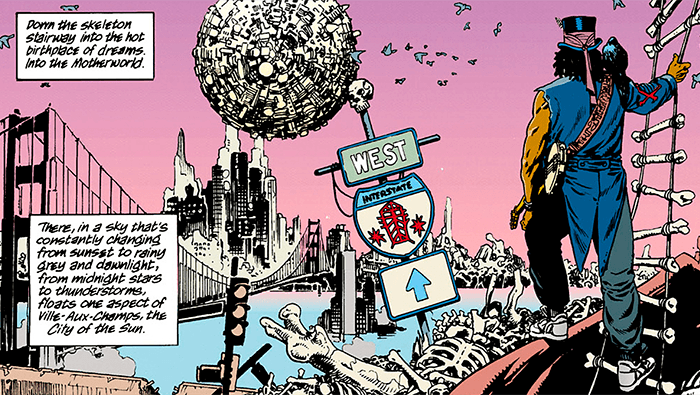
They worked on general concepts of Internet existentialism and, one might say, laid the foundation not only for the modern everyday understanding of the work of anonymizers and Tor, but also for hacker movements, network activism and independent journalism like WikiLeaks. By the way, the founder of this project, Julian Assange, himself unequivocally considers himself a cypherpunk.
During its heyday, the cryptanarchist network discussed public policy regarding cryptography along with hands-on conversations on mathematical, computational, technological, and cryptographic topics. No one knew what the IRL was doing this or that community member, but everyone understood perfectly well: in the growing race for the right to control the population online, you need to defend your rights yourself, using encryption technologies for the benefit of future generations ...
“Trust, but verify” : in the peculiar ideology of cypherpunks, purely mathematical principles of “trust checking” have found their practical application, which are still used, for example, in the blockchain, beloved by the head of Sberbank. In fact, any cryptocurrency known today, led by the sensational bitcoin, is the brainchild of programmers and engineers who reckoned themselves to be in this movement.
You need to know your heroes by sight. Anonymously.

Password: cypherpunks01
In pursuit of interesting toys that the modern high-tech market is spitting out in huge numbers, we stopped perceiving gadgets as a threat to invade our privacy. Flickering on the horizon of the last century, the "Internet of Things" from time to time aroused the alarm of futurologists and technoprophets, but as soon as it occupied and displaced our comfort zone, slipped the fodder of human laziness and extended a hand to any small gear of the system, these worries faded into the background, becoming the lot only freaky guardians of the anonymity and security of cyberspace. But in vain.News like “a high-tech factory of a corporation, together with an internal super-secured network, was hacked through a coffee maker in the lobby” is already becoming a part of our reality, no matter how we deny these manifestations and no matter how we justify the attack on our privacy by the ubiquitous household tech spies. They already know everything about us, right?
Back in the distant 90s, cypherpunks warned us living in the 20XX: privacy and anonymity are degenerating, important pieces are constantly being cut off from it, replacing them with what they later dubbed Web 2.0, paving the way for an absolute information society where everyone has access to the smallest details of everyone's life, down to the flesh, feelings, thoughts.
Imagine the same picture, supplementing it with neurocomputer interfaces and control chips. Mr. Kurzweil promises this to us by 2030, and some even earlier.
"Our children are already living a more public life than ourselves."
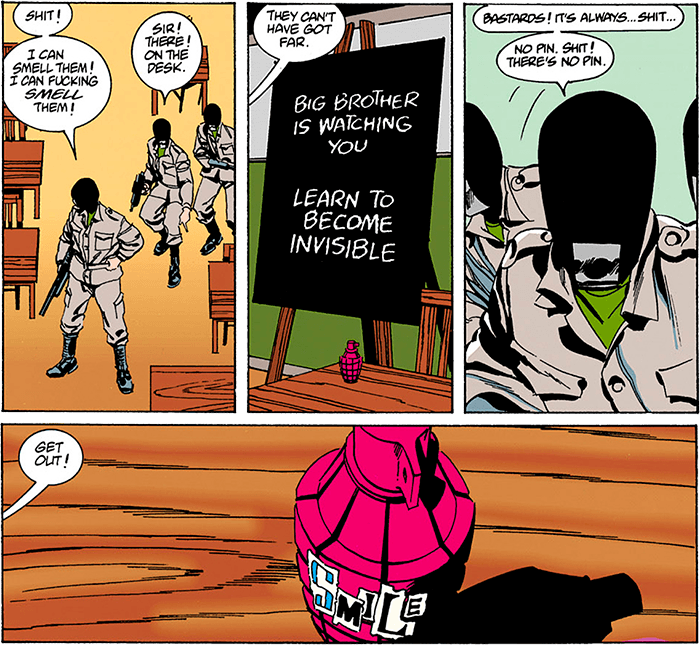
Sh-punk as a way of life
Who are these guys striving for anonymity as their inalienable human right? Perhaps, in my book "Enigmania" in 2012, I described exactly the image that was formed by discourse in the late 90s and polished by the end of the 2000s.Drawing parallels with what the cyberpunk genre experienced during its existence, we can say that cryptanarchism also experienced a certain "quantum transition". Initially, a typical sh-punk is a burning-hearted activist who feels responsible for the future of Internet communications and the dominance of Big Brother's methods thanks to the cheaper technologies of video surveillance, information storage, interception and analysis of Internet traffic; a beginner Snowden at a telephone company, who understands how switching works and what carries the possibility of transmitting data over fiber-optic veins of a virtual sub-reality. Around all this, there was a light veil of anticipation of great upheavals and a sense of involvement in grandiose things, the construction of the future, no less.
Modern sh-punk is more like an undercover secret agent, increasingly defensive. Many things in the field of public control, which seemed to us well, very difficult to achieve yesterday, have already become a little outdated today. What will happen tomorrow when neural networks actively intervene in the matter? It seems that thanks to a few bold whistleblowers, even users far from the world of anonymizers begin to frantically adjust their personal data in social networks, to whom they themselves have entrusted everything about themselves. The clumsy interference of politics in this process only encourages those who have fallen short.
Alexander Bard, in one of his books, cited an excellent term describing the state and way of thinking of the Internet generation after the death of subcultures. Divids, conscious schizophrenics, constantly in a state of search for a new "identity", reflecting in the network worlds the unfulfilled desires and aspirations of a real username. This phenomenon shocks the older generations, who were hammered into their heads by completely opposite ideas of indivisibility: full correspondence of names, persons and personality characteristics in all documents and “classmates”. Already now, any schoolchild unwittingly realizes that the more incoherent fragments of personality a person is able to simultaneously support in the network, the more successful he is.
To some extent, the struggle for the opportunity to remain anonymous in these worlds is noble, and it could be called an attempt to absolutize the social shift of values observed by Bard. The ability to cut those strings connecting the flexible, as yet intractable body and many of its virtual "operating systems" are strings that are already used by IT corporations today for discreet tracking and stealing of manufactured goods and prepared services.
However, there is another important idea behind the movement of cryptanarchism - the unification of all these conscious schizophrenics of the new society into something single, communistically solidary, but still retaining the features of European individualism. The same "public" accounts for one-time use with the same logins and passwords, remailers transmitting the most important resource of the network - inspiration ideas ... almost the only way of secondary socialization of gifted and talented potential hikkikomori, which the network is now full of.
Somewhere among these streams of zeros and ones, identifying us by name and entry point, I am also floating.
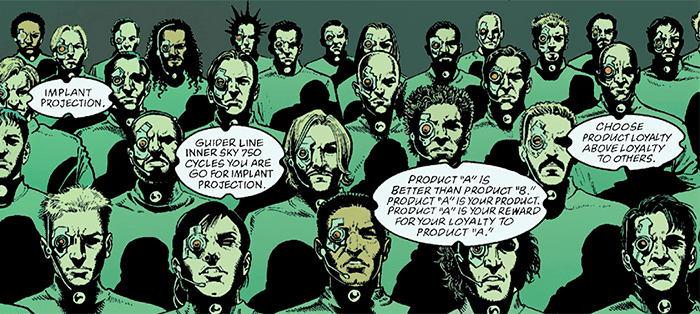
Point of no return
According to the cypherpunks, the danger of deanonymizing the information society became real when interactions between people ceased to be ephemeral. It is enough to read the Cypherpunk Manifesto of twenty years ago to understand that almost everything has come true by our time with interest - tracking "every car", Big Data, highly efficient analysis of huge amounts of data thanks to AI and an unprecedented drop in prices per memory storage unit.Even leading an emphatically cautious lifestyle, sooner or later you will end up in someone's lens, which automatically publishes your information garbage on social networks, from where it is not difficult for machines to extract your personal data. Even mood by facial expression as a percentage, free of charge without SMS and registration.
And yet there is a sense in this struggle even today, when drones with 4k cameras fly over their heads, thirsting for digital grub in the form of new likes and subscribers, and tomorrow, when refusal to identify with these drones may become a state crime ... If, of course, the controlling groups still have the audacity to be called "states".
"The country of the victorious cyberpunk" justifies its popular name in the most eloquent way today. In order to push through this or that restriction or empower this or that oversight body at the legislative level, you just need to create a society that will not protest and defend its rights. We ourselves did not notice how much technological capabilities became closely related to political action. This is precisely what the old manifestos and prophecies of cyber visionaries warned us about: we do not need a New World Order society in which censorship and control dictate rules of conduct for us. We do not need to feel the tacit presence of the state in bed with a loved one. We don't need targeted ads eavesdropping on our keyword conversations on locked cell phones.
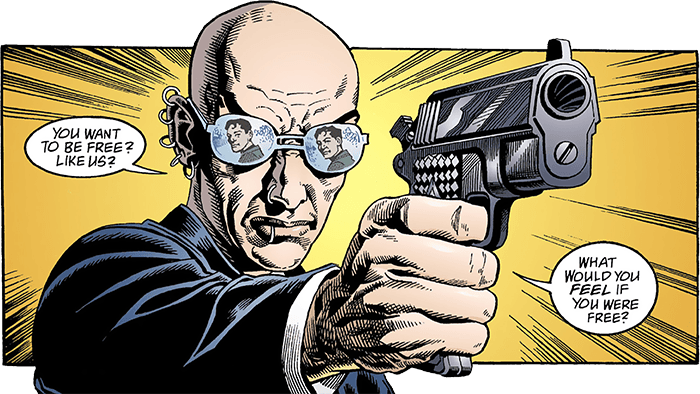
Unfortunately, as in the past and seemingly primitive times, the real scale of the problem becomes clear to the general public only when it is too late. Although, perhaps, by that time, the cyber capabilities and bandwidth of the NKI will be so sweet and tempting that there will no longer be such a person who would even want to go to this dangerous and unfriendly place called "offline".

